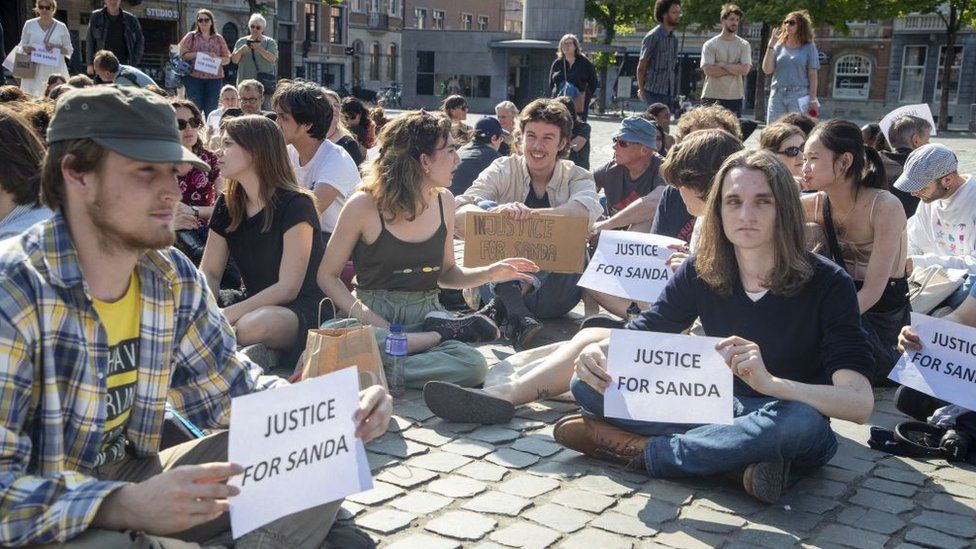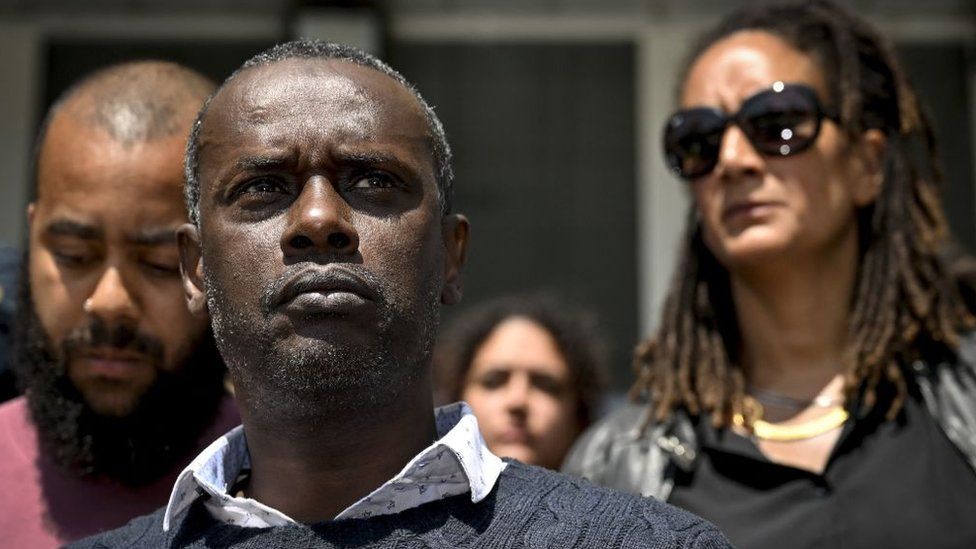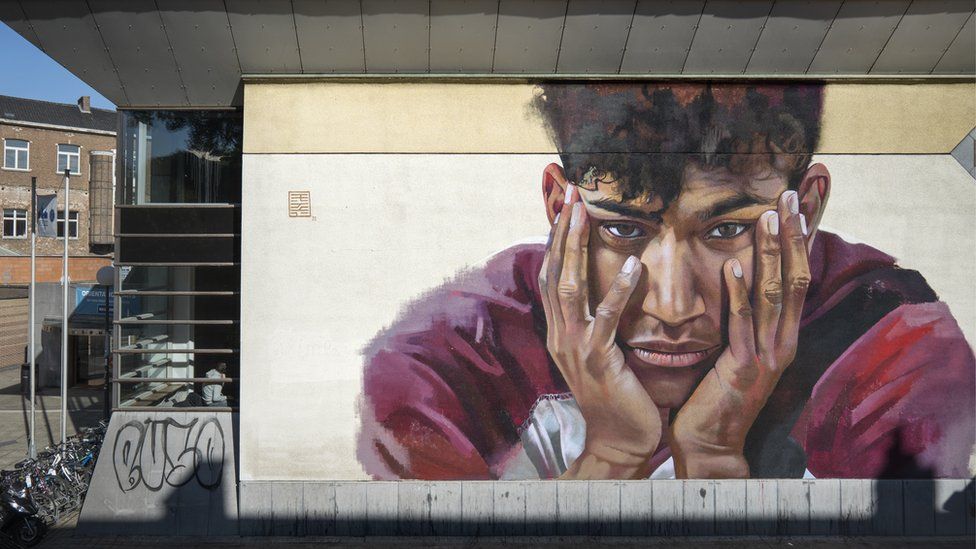In 2018, the passing of black Belgian student Sanda Dia stunned Dutch-speaking Flanders.
Some of the details in this article may be disturbing to some readers.
In a hazing ritual for a prestigious fraternity at one of Belgium's most esteemed universities, the 20-year-old student was allegedly made to consume excessive amounts of fish oil and alcohol, forced to swallow a live goldfish, and made to stand outside in an icy pit.
The procedure prospective members of Reuzegom had to go through in order to join the fraternity included being subjected to hazing, which is the act of causing someone physical or emotional harm.
Mr. Dia passed out and was taken to the hospital during the initiation. Two days later he passed away there.
According to a coroner's report, the excessive consumption of fish oil was a major factor in the man's demise.
After being found guilty of their part in Mr. Dia's untimely death and degrading treatment, 18 students were given sentences totaling up to 300 hours of community service and a €400 ($430; £340) fine each. This was more than four years ago.
The two other people who were also subjected to the hazing initiation, as well as Mr. Dia's family, have also been ordered to receive damages from them.
The students were found not guilty of purposely dispensing harmful substances that resulted in death or illness by the court. The students were former members of the now-disbanded Reuzegom, whose members were historically linked to some of Belgian society's elites.
However, since Mr. Dia's passing, claims that racial and socioeconomic factors contributed to the treatment he received during the hazing have sparked debate, particularly among young people on social media and in student circles.
Belgian media reported allegations of racism within the Reuzegom fraternity, including that Mr. Dia had been called a racial epithet and chosen to clean on behalf of Reuzegom members on a different occasion because of his race.
According to other local media reports, some Reuzegom members are the sons of politicians and judges, underscoring their privileged social status.
In light of this, some Belgians have expressed outrage at the verdict, considering the sentences to be excessively lenient.

More than 6.5 million views have been generated by the hashtag justiceforsanda on TikTok.
Additionally, demonstrations have been held in the cities of Antwerp, Brussels, Gent, and Leuven, the university town where Mr. Dia studied. On Sunday, a different one has been planned for Brussels.
Eliza Plesea, a 22-year-old student and co-organizer of the Brussels protest, told the BBC that "everyone is just angry and disappointed in the Belgian justice system.".
She stated regarding the sentences, "In Belgium, if you take the bus but you don't have a ticket. You receive a greater fine for that than what the students who engaged in hazing did.
Following the court's decision, John Maes, one of the students' defense attorneys, characterized the sentences as "balanced and well-reasoned.".
However, Mr. Dia's death "definitely" had racial overtones, according to protest organizer and student Jean Kitenge, 25.
Speaking to the BBC, Mr. Kitenge claimed that while it is common practice at Belgian universities for students to undergo "humiliation" as a part of society initiations, some are subjected to more severe treatment than others.
Everyone experiences humiliation regardless of their skin tone, but some people receive comments that are not directed at them, according to Mr. Kitenge, president of the DéFI party's youth wing in the French language.
"Not everyone in Belgium has access to justice. ".
Others don't concur. It has nothing to do with color and everything to do with physique, height, and weight, the defense attorney claimed in response to Mr. Dia's father's question about why his son did not survive the hazing during the 18 students' trial. This statement was cited by the Dutch newspaper NRC Handelsblad. ".
As for the court's decision, Mr. Maes praised it for rising "above the war language" of recent years.

There are "mixed emotions" among Mr. Dia's family members, according to some of them.
In an interview with Flemish TV earlier this week, Mr. Dia's brother Seydou De Vel stated, "We said from the beginning that we are not spiteful people and we do not want anyone in jail.".
The details of his brother's final hours, he continued, remain unclear.
The first relates to the person in charge of giving Mr. Dia the fish oil. Whoever was in charge of administering it has not been revealed by the students.
Mr. De Vel said, "It's just very painful not to know those things when those 18 Reuzegom defendants know it all.".
Sven Mary, the lawyer representing Mr Dia's father, Ousmane Dia, said after the court verdict it was "difficult" for the family not to know the full facts. He did, however, add that he would not be advising the family to attempt to appeal the decision.
Since the passing of Mr. Dia, the elitist fraternity Reuzegom has been dissolved.
The university at which it was a fraternity, KU Leuven, said sanctions were implemented against seven students who still remained at the university in 2021 - which involved their expulsion and, in some cases, lifetime banishment from registering at the university again.
"No sanction or proceedings can take away the grief over Sanda's death," it said in a statement to the BBC. "The fact remains that a great tragedy happened during the Reuzegom initiation ruling.
"Sanda and what happened will always be remembered by the university community. ".
If you're affected by any of the issues in this article you can find details of organisations who can help . courtesy of the BBC Action Line.







